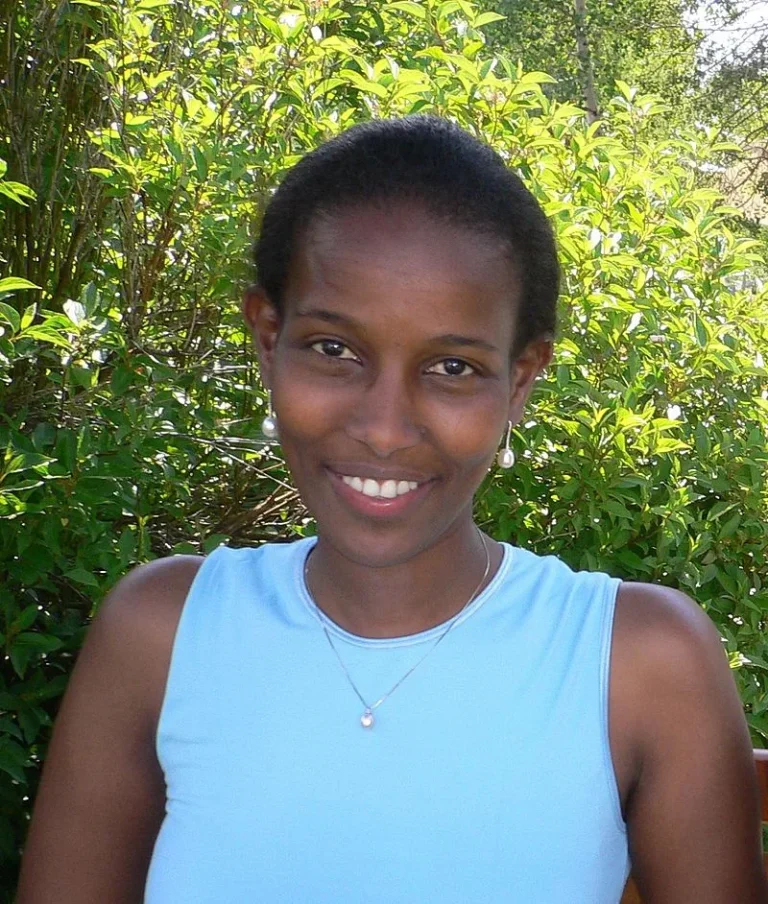Some are examination the depth of author Ayaan Hirsi Ali’s reported conversion to Christianity because she cites in part the strengthening of the West against its enemies as justification.
Ali is a former Somali Muslim (and child victim of genital mutilation) who escaped an arranged marriage to take refuge in the Netherlands, where she served in Parliament, renounced Islam, and made a film whose co -creator was killed by an Islamist. She adopted atheism as a rational alternative and now lives in the United States with her husband, the historian Niall Ferguson.
As someone who has long fought for freedom of expression, Ali explained in his column:
Freedom of conscience and expression is perhaps the greatest blessing of Western civilization. This does not come naturally to man. It is the product of centuries of debate within Jewish and Christian communities. It is these debates that have advanced science and reason, reduced cruelty, removed superstitions and built institutions to order and protect life, while guaranteeing freedom to the greatest number. Unlike Islam, Christianity has passed its dogmatic stage. It became increasingly clear that Christ’s teaching did not just imply a limited role for religion as something distinct from politics. It also implied compassion for the sinner and humility for the believer.
To combat China, Russia and Islamism, as well as domestic unrest, Ali wrote that more is needed than atheism and secular liberalism. The available counterweight is the Jewish and Christian heritage of the West. She noted:
This legacy consists of a complex set of ideas and institutions designed to safeguard human life, liberty and dignity – from the nation state and the rule of law to the institutions of science, health and learning. As Tom Holland showed in his wonderful book Dominationall kinds of seemingly secular freedoms – of the market, of conscience and of the press – find their roots in Christianity.
Ali’s conversion is not only political and cultural:
Yet I would not be honest if I attributed my embrace of Christianity solely to the realization that atheism is too weak and too divisive a doctrine to fortify us against our threatening enemies. I also turned to Christianity because I ultimately found life without any spiritual comfort unbearable – almost self-destructive. Atheism has failed to answer a simple question: what is the meaning and purpose of life?
Ali’s conversion is therefore also personal. For all her activism and demands for the truth, she realized she had no purpose in her life as an atheist. His expectation of human equality only makes sense if the God of Jews and Christians really exists. It looks like she goes to church, but she doesn’t describe herself as a denominational Christian. Perhaps she is where the English journalist Malcolm Muggeridge was after his conversion from atheism (just like Ali disdaining the British atheist Bertrand Russell), when he affirmed the idea but not the specific historicity of Christianity .
Ali’s conversion is also somewhat reminiscent of Whitaker Chambers, the mid-1920sth journalist of the century who had been a communist and collaborator of the Soviet secret services, who then turned to anti-communism, which led him to Christianity, as reported in his famous memoir. Witness. It is also famous that as Soviet communism seemed to advance, it thought it would join the righteous but losing camp.
There are, of course, many, many people who convert to Christianity, not because of an intense personal spiritual crisis leading to a cathartic acceptance of Jesus Christ, but because of a revulsion at the distortions of the world. For these converts, Christianity is first and foremost an intellectual and aesthetic oasis towards which they flee an arid desert. Later, during their spiritual journey, they often become more theologically specific. Muggeridge, in his interview with William Buckley, stated that he did not care whether Jesus Christ would physically resurrect from the dead. Presumably later, when he joined the Catholic Church, he actually cared.
Ali explained:
We cannot stand up to China, Russia and Iran if we cannot explain to our people why it is important that we do so. We cannot fight woke ideology if we cannot defend the civilization it is determined to destroy. And we cannot counter Islamism with purely secular tools. To win the hearts and minds of Muslims here in the West, we need to offer them something more than videos on TikTok.
Of course, the primary purpose of Christianity is not specifically to defend Western civilization or politically counter its alternatives. It is offering the living waters that flow from Christ, bringing abundant life and eternal life. Societies that turn to Christ, or at least are friendly to him, generally value human dignity, freedom, and justice for all people, at least approximately. It is right and good that people like Ali, particularly motivated by women’s rights, see and understand. Come whoever wants, as Christ said.
Christianity is not a geographically or politically Western faith. It has always been universal. But wherever it is taken into account, the chances of social improvement for all are greater. Hopefully, Ali’s conversion will inspire others to also examine the roots of societal freedom and look to the ultimate Source.


